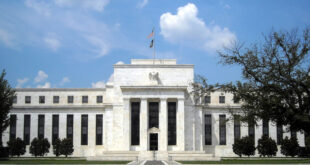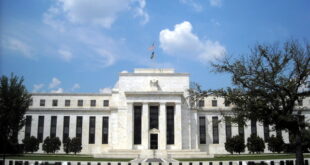Jan. 25, 2017, was a historic day in the equity markets. The Dow Jones Industrial Average broke the 20,000 mark for the first time in history, and all that optimism has put upward pressure on mortgage and treasury rates. Since the election, mortgage rates have jumped by almost 1 percent. The markets (both stock and bond) are expecting great results from what the new administration will bring to the table. Rates have moved up because of better-than-expected economic news and the potential of higher wages and higher inflation, both of which are needed to sustain real estate prices increase. …
Read More »The Fed “busts a move”
For the second time in nearly a decade, the Federal Reserve raised short-term interest rate, this time by .25 percent. The move was widely expected, as the futures markets had predicted in the last few weeks that there was a 100 percent probability that the Fed would raise rates. The bond market was not happy about Fed Chair Janet Yellen’s comments after the move. Bonds were caught off guard because the Fed changed their forecast for raising rates in 2017 from two increase to three. Although Yellen stated that any future moves would be data dependent, the market was caught …
Read More »Mortgage rates jump after Trump victory
Mortgage rates jumped by more than half a percent in the wake of the win by President-Elect Donald Trump. On the night of the election, as it became more and more apparent that Mr. Trump was going to win, the stock futures, an indicator of where the Dow Jones might open the next, was down 800 points, which indicated that rates would also drop. When the market opened the day after the election, the market started out flat and ended the day up over 250 points. This was almost a 1,100 swing relative to the projections. Mortgage and treasury …
Read More »All eyes are on the Fed this December
December seems to be the month the Fed is most comfortable with. They raised short-term rates in December 2015 for the first time since 2006 and now it looks almost certain that they will raise them again in December 2016. Last year was interesting in that all rates moves up prior to the Fed raising rate in December but in the months following the hike, mortgage and treasury rates actually fell. Mortgage and treasury rates move up or down based on economic reports. The months following last year’s hike showed that economic indicators were average at best and …
Read More »The Fed stays the course on rates
The Federal Reserve decided not to raise rates at their September 20-21 meeting, citing a lack of inflation and point out that the overall economy is moving at a steady pace and not overheating. The vote was 7-3 within the Fed not to raise rates. While there were some strong opinions from the three Fed presidents in favor of a rate hike, Chairwoman Janet Yellen cited that employment was in check and there was not a need at this time to make a move. The futures markets had only placed a 12 percent chance that the Fed would …
Read More »Rates experience a Brexit retreat
“The British are coming! The British are coming!” Those are the immortal words that Paul Revere’s called out in 1775 as the British troops were coming arrest Samuel Adams and John Hancock. But in 2016, the British are leaving, the British are leaving. Leaving the European Union. The Brexit vote that occurred in June surprised many in the financial services industry, with experts anticipating a vote that would leave Britain in the European Union. This spooked the equity market, triggering a 900-point drop in the two days after the vote. But the equity market’s loss was the mortgage market’s …
Read More »Federal Reserve stays the course
The Federal Reserve decided to leave rates alone at their mid-June meeting, citing a very weak jobs report in June and downward revisions to the two previous months of job reports. The Fed raised short-term rates in December of 2015 for the first time in nine years because economic data indicated that the economy was finally on the mend. The guidance that the Fed gave at that time was that they were planning on raising rates four times this year at a pace of a quarter of a point per raise. The statement that the Fed made after the …
Read More »The Fed’s dilemma
With summer right around the corner, the real estate and mortgage markets are enjoying volumes not seen since early in the last decade. All this could change soon if the Fed decided to raise rates at their upcoming meetings. The Fed has a dilemma on its hands. Either they raise rates and risk slowing down a very modest economic recovery or they keep the rates low and risk that they won’t be able to stimulate the market by lowering them again if we hit an economic downturn. Let’s face it, if our economy was doing great, mortgage rates would not …
Read More »Why this time will be different
Rates have dropped down to near historic lows. As of mid-April, the 30-year fixed was at 3.625 percent, the 20-year fixed was at 3.375 percent and the 15-year fixed was at 2.875 percent. Back in 2012, rates were actually lower by a quarter percent across the board, but real estate values were also lower at that time as the whole country was still struggling to recover from the financial crisis of 2008. In addition to seeing our fair share of refinancing, 2016 has brought many more borrowers to the market looking to sell their current home and upgrade to a …
Read More »The Fed backs off
The Fed meets every six to seven weeks to discuss monetary policy with regional representatives called Fed presidents. They gather with Fed chairwoman Janet Yellen to discuss and vote on whether to raise or lower rates, or keep them the same. On March 16, the Fed met and took a softer tone on raising rates this year. After a historic interest rate rise in December — the first in nine years — the Federal Reserve initially estimated that it would raise the federal fund rate four more times in 2016 because it thought that the economy would be strong enough …
Read More » Fra Noi Embrace Your Inner Italian
Fra Noi Embrace Your Inner Italian



